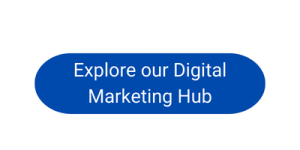We live in a fast-paced and digitally advanced era. Every day, millions of people around the world use the internet to shop, make friends, find new jobs, and learn. And the same goes for business. Digital marketing empowers big and small businesses to gain new audiences. By using online marketing strategies tailored to their specific needs and resources small businesses can thrive online.
What is Digital Marketing?
Digital marketing is another term for online or internet marketing. It encompasses websites, mobile apps, emails, social media, and search engines. Even the smallest business can use them to promote and advertise their products and services to customers.
The Benefits of Digital Marketing for Small Businesses
Small businesses can face challenges in reaching their target audience. The beauty of digital media is that it creates a level playing field for small businesses to compete with larger companies. Here are some of the benefits of online marketing:
- Cost-effective: Startups with small marketing budgets can compete with larger businesses without breaking the bank. You don’t need pro graphic designers or copywriters on your team. With a few free tutorials from Alison on using tools like Canva to create strong visuals or ChatGPT to generate well written text, you can soon create eye-catching content.
- Targeting: Digital marketing offers precise targeting options that help you reach potential customers.
- Analytics: Tools like Google Analytics help you monitor web traffic, conversion rates, and user behaviour. You can assess whether your strategies are working, and make decisions based on real-time data and hopefully, improve your results.
- Direct engagement: Digital marketing creates opportunities to engage directly with customers. Social media platforms and email marketing help companies build lasting relationships and brand loyalty.
- Flexible: The flexibility and scalability of digital marketing allow small businesses to adapt and respond quickly to market trends, conditions, hot topics, and customer preferences.
These benefits help small businesses keep their fingers on the pulse of what their customers want and need.
How to Use Digital Marketing Strategies to Grow Your Business
Digital marketing is vital for enlarging small businesses and increasing brand awareness. Here are some key tips to take you from novice to expert digital marketer and your business from a corner shop to a global powerhouse.
1. Create a Solid Online Presence
Establishing a strong online presence is key to any digital marketing strategy. This means having a user-friendly website with good search engine optimisation (SEO). A well-designed website not only enhances your brand image but also ensures that potential customers can easily find a nd navigate your site.
nd navigate your site.
You can go one step further and improve all your business profiles on social media platforms such as Facebook, Snapchat, TikTok, Instagram, X (formerly Twitter), andLinkedIn.
Tip: Maintain an active presence on these platforms by posting regular, high-quality content and engaging with your audience and other pages. This helps you build relationships with your audience and build a community around your brand.
Learn more with our free courses:
Profitable Marketing for Small Businesses – This introductory course provides a comprehensive guide to developing a winning marketing strategy for small businesses, covering customer analysis, product development, competitive analysis, branding, and profit-generating marketing systems.
Building a Successful Business Website – Learn about essential website development skills, including domain name selection, web hosting, SSL certificates, mobile-friendly design, search engine optimisation (SEO) and search engine marketing (SEM) strategies, and image optimisation.
2. Master Content Marketing
“Content is king‘ in digital marketing. Use content marketing to attract and retain customers. How do you do that? Start a blog on your website and create valuable, informative, and engaging content that speaks to your audience’s needs and interests. You can also create catchy content on your social media – articles, videos, infographics, and more. Once you have got a rhythm going and a great content calendar set, you can consider guest posting on industry-related websites or collaborating with influencers to expand your reach.
Tip: Consistently produce high-quality content, and you can position yourself as an authority in your niche and gain the trust of your target audience.
Explore more with our free content marketing courses:
Copywriting for Conversions: How to Write Persuasive Content – Learn how to create copy that converts readers into buying, from an attention-grabbing headline to an enticing product description. Topics include pre-selling content for affiliate offers to writing product or service reviews and much more.
Content Curation: A Guide to Growing Your Customer Engagement – Boost your word power even further by understanding how to use content from other sources for your brand. This course will help you adapt user-generated content (UGC) to build trust and authenticity, create blogs your target audience will enjoy and then promote them through social media and email marketing.
3. Reach Your Audience With Email Marketing
Email marketing is a tried, trusted and cost-effective way to connect with your audience and nurture possible leads. Building an email list lets you send targeted communication, promotions, and updates directly to subscribers. You need to ensure that your emails are personalised and provide real value to recipients. Automation tools enable you to categorise your audience, send automated responses, and monitor the effectiveness of your campaign.
Tip: Always provide a simple way for users to opt out if they want, and keep the rules governing email marketing in mind.
Master email marketing with our free courses:
Email Marketing for Businesses – Learn the importance of a business email and how to set one up with Google Workspace, how to design sign-up forms to optimise the process and increase conversions and how to automate for onboarding, engagement, retention or re-engagement
Basics of Email Marketing – This course will help you to set up lists of target customers to email and how to create autoresponders or automatic responses that work for them. You’ll also learn about market research, different approaches to sales and marketing and the importance of using keywords and other SEO methods to drive online traffic.
 4. Connect Through Social Media Marketing
4. Connect Through Social Media Marketing
Social media platforms offer a treasure house for small businesses to engage with their audience. Take time to plan and develop a social media strategy that aligns with your brand’s goals and target audience. Consider paid advertising on platforms like Facebook, Instagram, and Twitter. You can set your own budget and reach a larger audience.
Tip: Share relevant content, run contests, and respond to comments and messages in a timely manner.
Boost your social media marketing skills with free courses:
Facebook Marketing and Advertising – Learn how to create and optimise a Facebook Business Page for your brand, reach specific audience segments, analyse Facebook Insights to track and improve your performance, develop a sustainable long-term Facebook marketing strategy to achieve business growth and much more.
TikTok Marketing Essentials – Your Path to Expertise – With 43% of users following up on something after seeing it once on TikTok, you can’t afford to ignore this platform. Learn about the relationship between meme marketing and Gen Z and explore how you can use TikTok to upscale your operations and expand your international reach. Explore TikTok advertising and how to use TikTok analytics to your advantage.
Guide to Boosting Your Instagram Business Page – Discover pitfalls to avoid and how to grow organically on Instagram. You’ll learn how to implement the most successful Instagram methods and strategies, including using Link Tree to get multiple bio links, leveraging IGTV and video content, targeting hashtags automatically, acquiring verification and using other social media to funnel traffic to Instagram.
Building a Professional Brand Using LinkedIn – Ignore the world’s most popular networking site and you are turning your back on up to 85 million people. This course will teach you the best LinkedIn branding techniques available through social engagement, messaging, groups, ‘Creator’ mode, the ‘providing services’ page and more.
5. Pay For Online Advertising
Online advertising, including pay-per-click (PPC) advertising, can provide an immediate boost to your digital marketing efforts. Google Ads is a popular platform that allows you to bid on keywords relevant to your business. When users search for those keywords, your ads appear at the top of the search results.
Tip: If you can, consider display advertising and retargeting campaigns to keep your brand in front of potential customers who have visited your website but didn’t make a purchase.
Learn how to make adverts work for you:
Online Marketing With Google Analytics – This course provides a comprehensive overview of Google Analytics, covering topics such as understanding its core functions, leveraging Google Ads, optimising goal tracking, creating custom URLs, utilising data-driven insights for conversion rate improvement, and integrating Google Ads and Analytics accounts.
Mastering Advertising in the Digital Age – Gain the skills to harness the power of online advertising for small businesses. You’ll learn to define your target audience, analyse competitive landscapes, craft compelling search ads, and optimise ad rankings on Google Ads.

Be Empowered in the Digital Landscape
Small businesses can thrive in the digital landscape with effective digital marketing strategies. A strong online presence, content marketing, email marketing, social media marketing, online advertising, and data analysis are key.
By consistently adapting and optimising these strategies, you can connect with your target audience, drive growth, and remain competitive in today’s digital age.
Sign up for Alison’s free online digital marketing courses today and watch your business grow!
Frequently Asked Questions:
General FAQs
What is digital marketing?
Digital marketing is the practice of promoting products or services through online channels such as websites, social media, email, and search engines.
Why is digital marketing important for small businesses?
Digital marketing offers cost-effective, targeted, and measurable ways to reach a wider audience, build brand awareness, and generate leads and sales.
Website and Online Presence FAQs
How do I choose a good domain name?
A good domain name should be relevant, easy to remember, and easy to spell. Avoid using hyphens or numbers.
What is a good web host?
A good web host offers reliable uptime, fast loading speeds, good customer support, and easy-to-use tools.
What is an SSL certificate and why is it important?
An SSL certificate encrypts data transmitted between a website and a user’s browser, ensuring secure communication. It’s essential for e-commerce sites and builds trust with visitors.
Content Marketing FAQs
What is content marketing?
Content marketing involves creating and sharing valuable content to attract and retain a clearly defined audience and ultimately, drive profitable customer action.
How can I create high-quality content?
Focus on creating content that is informative, engaging, and relevant to your target audience. Use strong headlines, clear writing, and visuals to enhance your content. Alison’s free online Content Marketing courses can equip you with the knowledge you need to succeed.
Email Marketing FAQs
How can I build an email list?
Offer incentives like discounts, exclusive content, or free resources to encourage visitors to sign up for your email list.
How often should I send emails?
The frequency of your emails depends on your industry and audience. However, aim for a balance between staying top of mind and avoiding overwhelming your subscribers.
Social Media Marketing FAQs
Which social media platforms should I use?
The best platforms for your business depend on your target audience. Consider platforms like Facebook, Instagram, X, LinkedIn, and TikTok. Find out more with Alison’s free social media marketing courses.
How can I measure the effectiveness of my social media marketing?
Use social media analytics to track metrics like engagement, reach, and conversions.
Online Advertising FAQs
What is pay-per-click (PPC) advertising?
PPC advertising is a type of online advertising where you pay a fee each time your ad is clicked.
How can I improve my Google Ads campaigns?
Use strong keywords, compelling ad copy, and targeted ad groups to improve your Google Ads campaigns.









